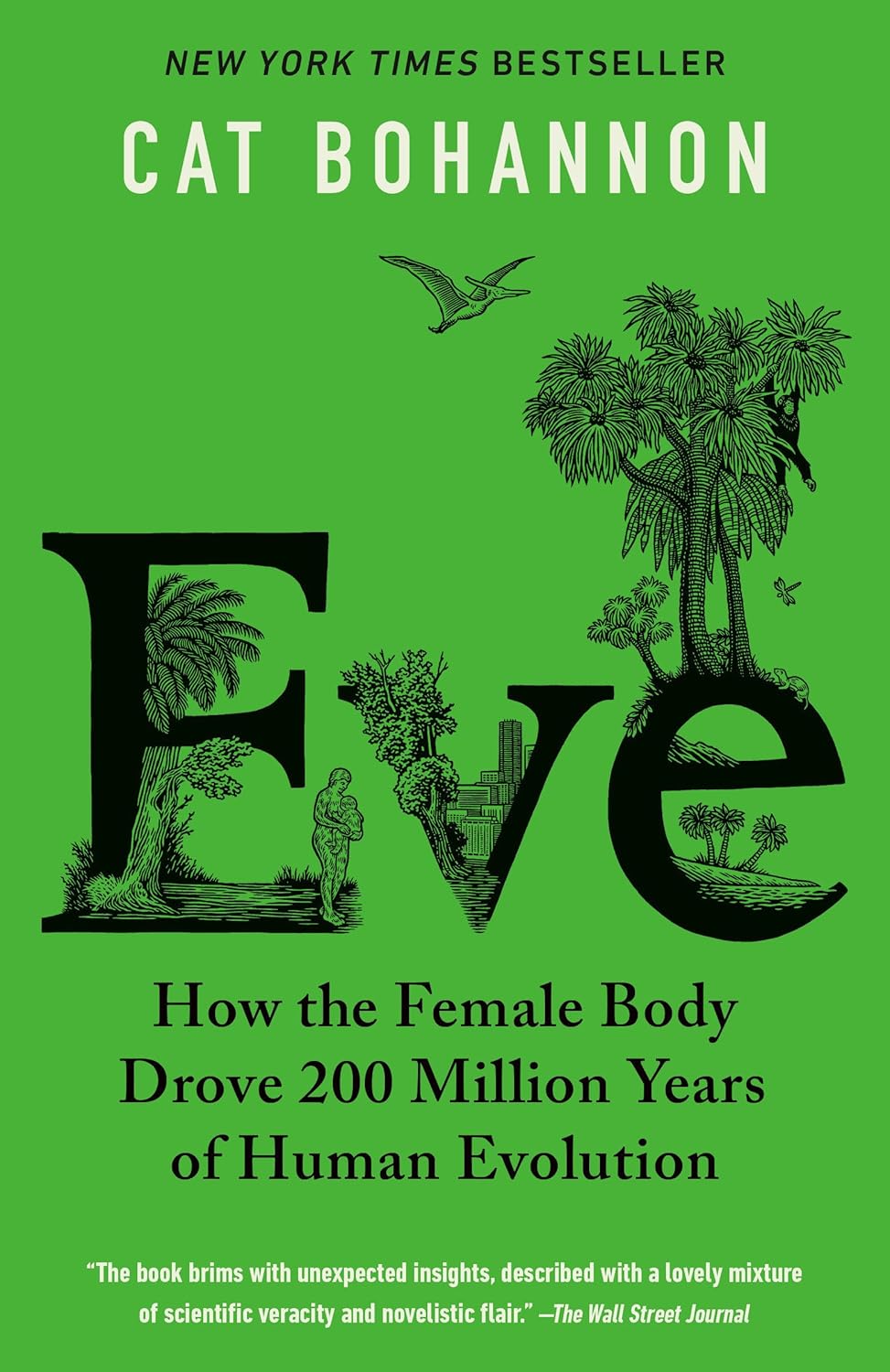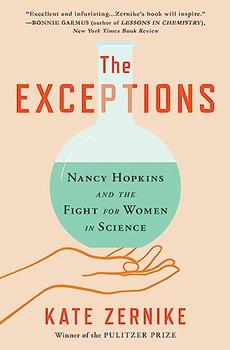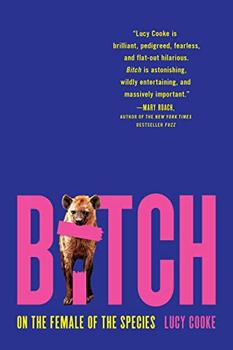Summary | Excerpt | Reading Guide | Reviews | Beyond the book | Read-Alikes | Genres & Themes | Author Bio

How the Female Body Drove 200 Million Years of Human Evolution
by Cat BohannonIn Eve: How the Female Body Drove 200 Million Years of Human Evolution, one of author Cat Bohannon's startling revelations is that more women die of heart attacks than men, even though women are not more biologically prone to heart attacks. The opposite is true: men are more likely to suffer heart attacks than women. However, the standard symptoms of a heart attack most of us know — pain shooting up the arm, crushing weight on the chest — are, as it turns out, the symptoms men experience. Women's heart attack symptoms, such as acid reflux and dizziness, have not been studied as thoroughly and are thus not widely known, resulting in more women dying of heart attacks because they do not recognize or report the signs.
Eve highlights how throughout the history of science and medicine, women's bodies have been neglected and frequently ignored, while men's bodies have been and still are the default. A vast, meticulously researched, and often entertaining work encompassing an enormous amount of information, Eve takes the reader on an epic journey through the history and evolution of humanity, focusing specifically on the development of the female sex.
The book took Bohannon 10 years to research and write, and, through chapters titled "Milk," "Womb," "Perception," "Legs," "Tools," "Brain," "Voice," "Menopause," and "Love," it provides a wealth of data from relevant scientific fields. The author provides in-depth analysis of biological and evolutionary features, physical and mental variables, and societal pressures and influences, while countering common misperceptions, assumptions, and stereotypes.
Women do not have just one common ancestor, or just one "Eve" as Bohannon calls them, but many Eves. Over the course of 200 million years, different mammals played crucial roles in human evolution, and Eve charts how the females of those species played their parts in the evolution of the female human body. The impetus behind Bohannon's undertaking is that ignoring and neglecting the female half of humanity in medical and evolutionary studies has had a deleterious effect on women's healthcare, and on knowledge and understanding of the female body as a whole.
The book makes clear from the outset that the notion of women's bodies being just like men's, except for a few external parts missing, is not the truth. Sex is not simply a matter of external sex organs, Eve affirms — our sex characteristics permeate every part of our mammalian bodies and the lives we live inside them. Referring sensitively and with nuance to the varying issues of trans men and women and people with differences of sex development (DSDs), the book makes clear that there is a massive difference between biological sex and gender identity; that most of the scientific community agrees that sex and gender are two fundamentally different things; and that much more research is needed in all areas of sex and gender affecting people who have been unjustly neglected, stigmatized, and marginalized.
Amongst the comprehensively researched facts and brilliant explanatory examples, Eve occasionally adopts a colloquial style that readers will find amusing, but perhaps a little jarring at times. For instance, in the "Menopause" chapter, when describing in graphic and harrowing detail a hypothetical breech birth in Jericho 8,500 years ago, and the excruciating, life-threatening agony of the young woman giving birth, the child emerging turns out to be a boy, after which the author/narrator wryly comments, "Figures."
Bohannon's wit and humor prove nonetheless effective, creating an enjoyable and enlightening read as opposed to a dry academic treatise. She demonstrates eloquent storytelling skills when evoking different eras and conditions in which our ancestral Eves lived. Her epiphany while watching Ridley Scott's 2012 science fiction film Prometheus, in which Noomi Rapace's character, impregnated by an alien, staggers to a medical pod for an emergency C-section, only to be told that the pod is only calibrated for male bodies, will resonate with women everywhere. "Who does that?" asked an annoyed woman behind her in the cinema. Bohannon's answer: science and the medical profession do exactly that (see Beyond the Book).
This timely, thought-provoking book makes no apology for its focus on the female sex and on how female biology is unique unto itself, with crucial differences and distinctions from male biology. It makes a clear argument as to why these must be recognized and researched: not only for female healthcare to be improved upon, but also for sexist and misogynist attitudes toward women and girls, and outdated stigmas and squeamishness about female bodies in general, to disappear. One positive aspect is what Bohannon terms a quiet revolution in the science of womanhood: a new push to study, discover, and understand what it means for women to have evolved the way we have, with all the physical characteristics resulting from that evolution. We are our bodies, Bohannon says, and knowledge and understanding of the female body could radically change the way all human beings think about our species.
![]() This review was originally published in The BookBrowse Review in November 2023, and has been updated for the
March 2025 edition.
Click here to go to this issue.
This review was originally published in The BookBrowse Review in November 2023, and has been updated for the
March 2025 edition.
Click here to go to this issue.

If you liked Eve, try these:

by Kate Zernike
Published 2024
From the Pulitzer Prize–winning journalist who broke the story, the inspiring account of the sixteen female scientists who forced MIT to publicly admit it had been discriminating against its female faculty for years—sparking a nationwide reckoning with the pervasive sexism in science.

by Lucy Cooke
Published 2023
A fierce, funny, and revolutionary look at the queens of the animal kingdom.
Your guide toexceptional books
BookBrowse seeks out and recommends the best in contemporary fiction and nonfiction—books that not only engage and entertain but also deepen our understanding of ourselves and the world around us.